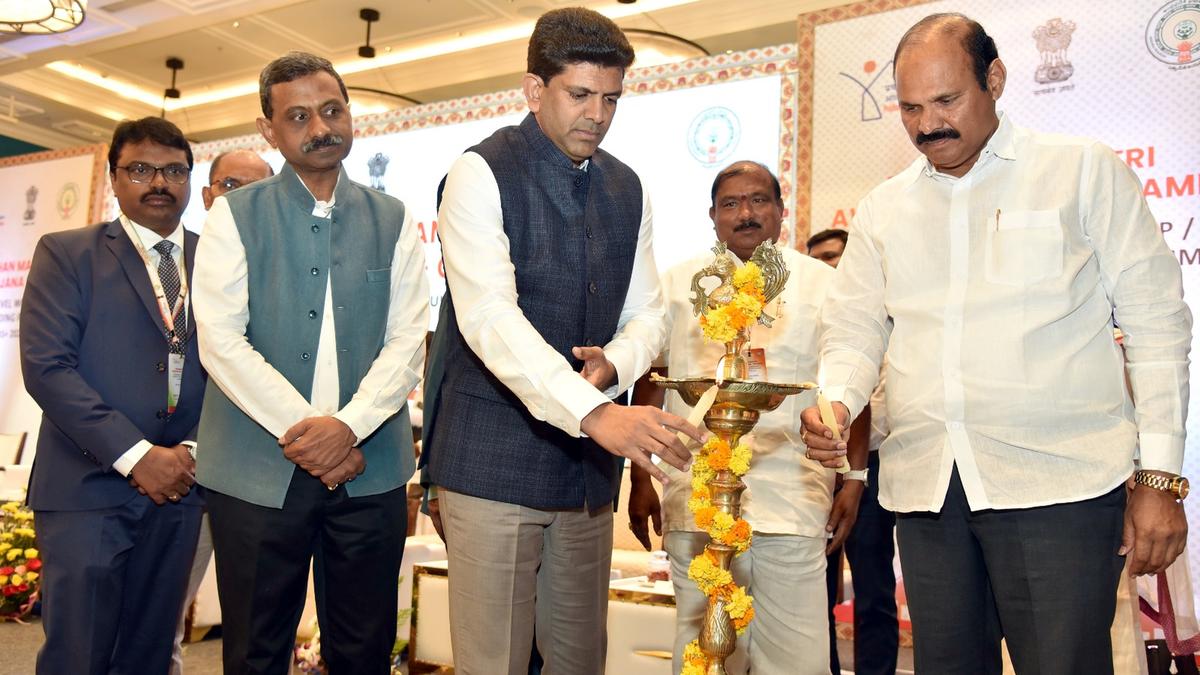
Two-day workshop on rural housing begins in Guntur
The Hindu
Union Minister emphasizes timely completion of rural houses under PMAY-G, introduces Awaas+ 2024 app for transparency and efficiency.
Union Minister of State for Rural Development Pemmasani Chandra Sekhar suggested that all the State Governments complete the construction of houses in rural India as per the schedule while delivering a keynote address at the inaugural session of the two-day regional-level workshop and capacity-building programme for Awaas+ 2024 App under PMAY-Gramin at Guntur on Monday.
He said that to achieve the objective of housing for all in rural areas, the Government of India has launched the Pradhan Mantri Awas Yojana–Gramin (PMAY-G), effective April 2016. The Ministry of Rural Development is implementing the PMAY-G under which the 2.95 crore houses were allocated between 2016-17 and 2023-24, targeted to be completed by March 2024. More than 2.94 crore houses have already been sanctioned to the eligible beneficiaries by the States, and over 2.66 crore houses have already been completed, he explained.
Further, Dr Pemmasani added that Prime Minister Narendra Modi had approved the proposal for implementing PMAY-G from 2024-25 to 2028-29 under PMAY-G 2.0, wherein financial assistance is to be provided for the construction of two crores more houses. The total outlay of ₹3,06,137 crore for the next five years includes the central share of ₹2,05,856 and the State matching share of ₹1,00,281 crore, he said.
He said that the Ministry has developed the Awaas+ 2024 application to identify potential eligible beneficiaries for updating the Awaas+ database using eKYC face-based authentication with 10-point exclusion criteria. He added that new IT initiatives like geo reference, liveliness deduction, and using image analytics to identify house attributes are introduced for more transparency in implementing the scheme.
Addressing the gathering, Andhra Pradesh Minister for Housing Kolusu Parthasarathy requested the Union Minister to enhance the unit cost for each house and help provide basic infrastructure at the housing layouts to ensure the early completion of the houses.
Mr. Parthasarathy added that denying a beneficiary on the basis of having a car is not correct. He suggested that while considering car ownership as a criterion for excluding a beneficiary, the government should look into the age and purpose of the vehicle. If it is an old or used vehicle and one is using it for livelihood, then the person should be allowed to have the house under the scheme. He suggested that the Union government change the criteria accordingly.
In response, the Union Minister suggested that the State government could mobilize MGNERGA funds for road infrastructure at the layouts.











